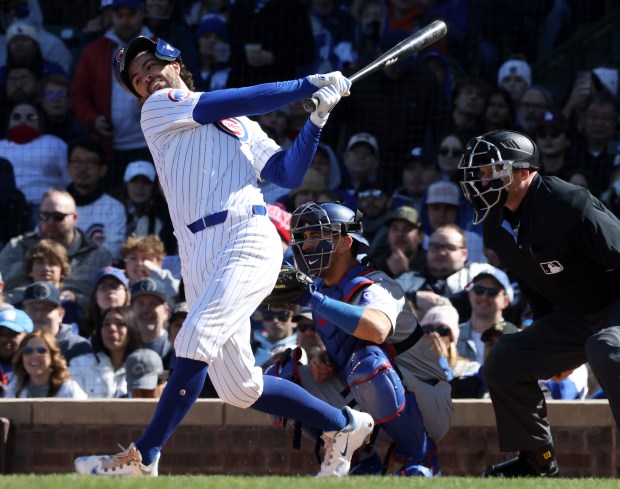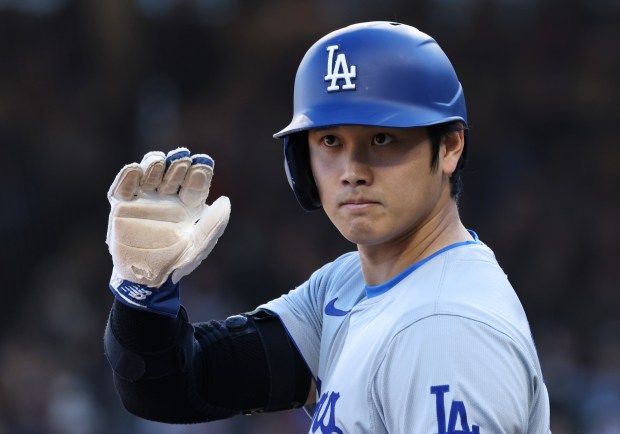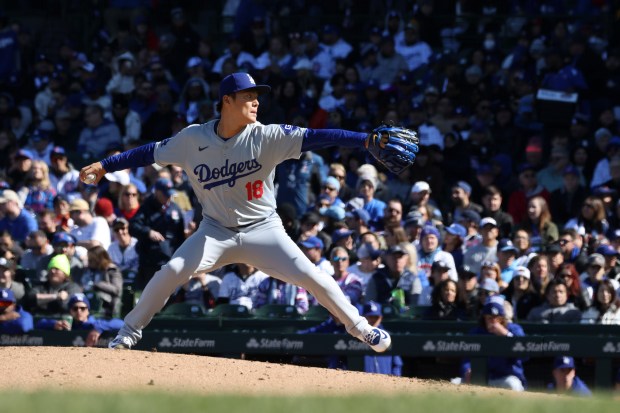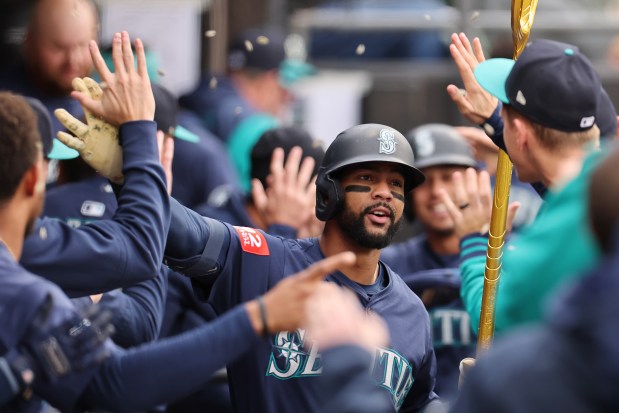Late Boston Red Sox President Larry Lucchino, who died Tuesday at age 78, was renowned as the executive who coined the term “Evil Empire” for the New York Yankees.
It happened in winter 2002 after the Yankees signed Cuban pitcher Jose Contreras to a four-year, $32 million deal, pushing their payroll to $158 million, far exceeding the $117 million luxury-tax threshold.
More than two decades later, those numbers seem quaint, and another free-spending empire has spread its tentacles across the world.
The Los Angeles Dodgers spent $1.3 billion this offseason on four players — free agents Shohei Ohtani, Yoshinobu Yamamoto and Tyler Glasnow and an extension for catcher Will Smith. They began the 2024 season with a $249.8 million payroll, according to USA Today, third highest in the majors though only $12 million over the luxury tax because of Ohtani’s decision to defer 97% of his record $700 million contract.
Like the 2003 Yankees, the 2024 Dodgers are a super team everyone in baseball is talking about.
Whether they are good for the game is debatable.
“It’s good for the news cycles,” manager Craig Counsell cracked before Saturday’s 4-1 loss to the Dodgers ended the Cubs five-game winning streak. “They’ve put together a great team within the rules of the system. It involves spending, but they’ve done it pretty wisely too. They’re doing what they’re supposed to do and put together a really good baseball team.”
There’s no doubt about that.
A crowd of 41,040, the largest at Wrigley Field since 41,179 turned out for a visit from the Oakland A’s on Aug. 7, 2019, saw the best team money can buy silence a Cubs offense that looked unstoppable over the first seven games.
Yamamoto, who signed a 12-year, $325 million deal, left Cubs hitters shaking their heads Saturday with an assortment of curves, splitters and fastballs in five shutout innings. After loading the bases to start the first, he struck out Christopher Morel on three curves and caught Dansby Swanson and Michael Busch looking.
Jordan Wicks left in a scoreless tie with two outs in the fifth before Jose Cuas allowed a run to score on a wild pitch and two more on Max Muncy’s double off the right-field wall. Wicks threw a career-high 100 pitches, allowing two runs over 4 2/3 innings.
“They capitalized on one opportunity, and that was enough,” Counsell said.
Wicks said he “backed himself into a corner” by going 3-0 on Austin Barnes before issuing a leadoff single and “knew my rope was thin.” Counsell wasn’t going to take him any further this early in the season.
Yamamoto finished with eight strikeouts after the shaky start, and four Dodgers relievers combined for seven more. Nico Hoerner said Yamamoto’s “unique delivery” that made him difficult to solve. Once he got through the second, Yamamoto looked unhittable.
“He kind of got into rhythm, and that’s what happens against the good ones,” Counsell said. “You’ve got to break through when you get those shots, and unfortunately in that first inning we couldn’t break through.”
The Cubs scored a run in the ninth to avoid being shut out and sent the tying run to the plate before Ian Happ struck out with two men on. They came in averaging seven runs per game, which was totally unexpected coming out of spring training.
“The numbers where they’re at now are unsustainable,” Counsell said Saturday morning of the offense, laughing as he stated the obvious.
True enough. Most April numbers are impossible to extrapolate over a 162-game season, whether good or bad.
But it’s not too early to speculate the Dodgers might have the best lineup in decades. While Chairman Mark Walter has no qualms about spending whatever it takes, Cubs President Jed Hoyer was tasked to build a championship team without exceeding the luxury tax. The Cubs entered the season ranked ninth in payroll at $219 million, highest in the National League Central.

Chairman Tom Ricketts praised Hoyer’s willingness to make the budget in spring training, noting “he definitely sees that you can only spend every dollar once, and he knows that you don’t want to have too many long-term contracts when you have a lot of young guys that are coming up through the minors.”
Still, some fans wondered why the Cubs didn’t go the extra step and pick up one of the available starters, perhaps Jordan Montgomery, who might have put them over the top.
Should the Cubs, with all their revenue streams, follow the Dodgers’ credo and do whatever it takes to win?
“You’re always trying to do that, and doing it the right way and responsibly and with the right players is a little harder than just saying ‘spend,’ ” Counsell said.

Ricketts argued in February that the Dodgers “have a much, much different economic situation than any other team in baseball based on their television deal,” which runs through 2039 and is worth $8.3 billion over 25 years.
“Their television revenues will continue to grow into the future while everyone (else’s) are dropping pretty quickly,” Ricketts said. “They’re going to have that advantage moving forward for a long time.”
As for the Cubs, he said: “I try to look at the budget much more consistently than (saying) ‘Let’s go for it.’ ”
We’ll find out at the trade deadline whether he sticks to his aversion to the “Let’s go for it” strategy. In the meantime, Hoyer will have to make more creative moves such as the three-year, $80 million deal for Cody Bellinger that allows him to opt out in 2024 and ’25.
It might be enough to get to the postseason, but whether they can get into the Dodgers’ stratosphere is questionable.
Either way, the Cubs still have a chance to win a series against the Dodgers, with Shota Imanaga starting the rubber game Sunday.
It might not mean much in the course of the marathon season, but so far it has been an intriguing series for Counsell and his team.




